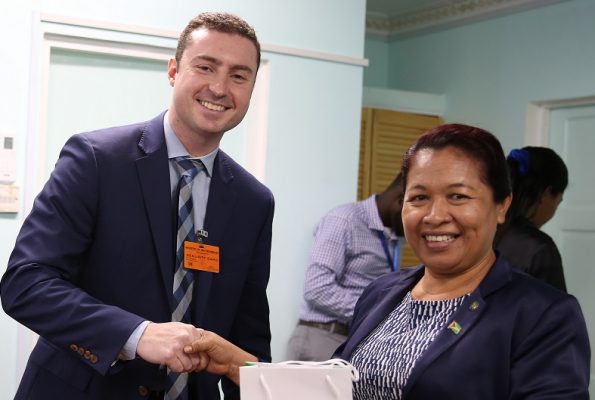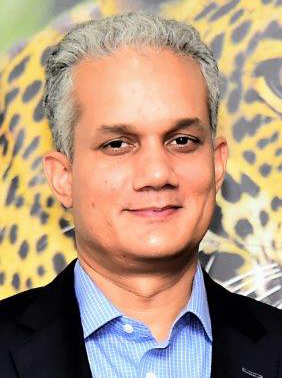Guyana needs to develop its own strategic plan for the oil and gas sector as having it done by other countries risks those countries’ interests being put above Guyana’s, former Petroleum Advisor to the government, Dr Jan Mangal says.
“Guyana should not pay too much attention to these studies by others. Countries need to do their own studies and not rely on whomever comes calling. A study by the Brazilians will be for Brazil’s interest. Just like the gas study by the Japanese was for Japan’s interests, and not for Guyana’s,” Mangal told Stabroek News.
The petroleum expert’s views come in the wake of a five-year strategic plan done by Brazil’s state-run oil firm, Petrobras, being presented to the Government of Guyana recently.

Petrobras has been in the spotlight for massive corruption in the last few years and the government here has been warned to proceed with extreme caution in relations with the company. In September last year, Petrobras was fined US$853 million by the US Department of Justice to settle charges that former executives and directors broke US anti-corruption laws by bribing politicians and then sought to conceal the payments amounting to hundreds of millions of dollars. The payments were facilitated by executives at the “highest levels”, including the firm’s board, the Department of Justice had said.
Among other payouts, the firm also made a US$2.95 billion payment to settle a US class action corruption lawsuit last year.
Petrobras’ plan was presented to recently appointed Minister of State, Dawn Hastings-Williams, during a courtesy call in the Ministry of the Presidency’s boardroom, a statement from the Department of Public Information had informed.
Hastings-Williams’ replaced Joseph Harmon, who has now been appointed Director General in the Ministry of the Presidency, following his resignation as a member of the National Assembly because of his dual citizenship status. Harmon was government’s parliamentary representative on oil and gas.
“…the Minister of State will answer in the Parliament for any matter as it relates to the Ministry of the Presidency,” Harmon had explained to the press last year when he took over the portfolio from Minister of Natural Resources Raphael Trotman.
Department of Energy Head, Dr Mark Bynoe, last Friday said that it was Georgetown which asked Brasilia for assistance.
“With regards to Petrobras, yes. The government reached out to Petrobras. We utilised our ambassador in Brazil, Ambassador George Talbot, and this was an official visit that came through the Ministry of Foreign Affairs,” Bynoe said, when asked by Stabroek News about who initiated the move.
He said that the two countries have identified at least seven areas of possible collaboration but Petrobras representatives indicated that they only wanted to focus on two during the last visit.
“We have identified at least seven potential areas that we can collaborate going forward. Petrobras indicated that for this current visit they wanted to focus on two, which largely centred on issues relating to a licensing round and their own expertise in deepwater exploration,” Bynoe said.
Mangal believes that Guyana’s officials should dictate the terms of discussions and what they want for the country instead of allowing others to choose for them.
“Guyana’s officials seem continually incapable of doing basic things themselves, and instead get all excited when foreigners come calling with a PowerPoint in hand,” Mangal said.
“It is similar to how our government officials see ExxonMobil as their saviour. Guyana needs to decide what it wants to be when it grows up, what it wants to look like, and then conduct all its own studies and develop its own plans to achieve its own vision. If Guyana relies on the savvy salespeople who come calling with PowerPoints, then Guyana will never grow up,” he added.
When Petrobras’ plan was handed over, Bynoe, who was present at the meeting, had said that government welcomes the support while pointing out that external help would complement current plans of his agency.
“We are like you; we have a vision, a strategic plan in terms of where we are going…currently we have a roadmap and we trust that over time, we begin to enhance our own capacities through [bringing] in third-party expertise and then Guyanese expertise moving forward as minister indicated with training,” he had said.
Bynoe added that despite the current challenges concerning the oil and gas industry, Guyana hopes to establish a concrete plan that will benefit its citizens.
‘Never catch up’
Mangal believes that Guyana should put oil and gas production on hold and get its institutions, plans and development of legislation right, first.
He said that with weak systems, this country opens itself to being dominated which can lead to loss of needed revenue.
“Oil companies achieve their objectives by producing oil as quickly as possible, but the objectives of oil companies and the objectives of countries are different. Guyana needs to delay and also constrain the production to improve Guyana’s interests,” he said.
“ExxonMobil knows Guyana is overwhelmed and that Guyana cannot do basic things, so ExxonMobil wants to rush so as to keep its dominance over a weak Guyana. If Guyana does not delay and constrain production, Guyana will never catch up,” he emphasised.





